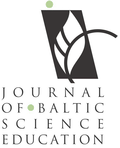EFFECTS OF METACOGNITIVE SKILLS ON PHYSICS PROBLEM -SOLVING SKILLS AMONG FORM FOUR SECONDARY SCHOOL STUDENTS
| Title | EFFECTS OF METACOGNITIVE SKILLS ON PHYSICS PROBLEM -SOLVING SKILLS AMONG FORM FOUR SECONDARY SCHOOL STUDENTS |
| Publication Type | Journal Article |
| Year of Publication | 2023 |
| Authors | Wider, C, Wider, W |
| Journal | Journal of Baltic Science Education |
| Volume | 22 |
| Issue | 2 |
| Start Page | 357-369 |
| Pagination | Continuous |
| Date Published | April/2023 |
| Type of Article | Original article |
| ISSN | 1648-3898 |
| Other Numbers | E-ISSN 2538-7138 |
| Keywords | gender differences, Malaysia, metacognitive skills, physics problem-solving skills, secondary school students |
| Abstract | A number of studies have demonstrated a connection between metacognition and the ability to solve problems. Therefore, this study aimed to examine the effect of metacognitive skills on Physics problem-solving skills among Form Four secondary school students in Sabah, Malaysia. This study included 248 students from 13 secondary schools in the Kota Kinabalu district. Physics Problem Solving Skills Test and the Metacognitive Skills Questionnaire were used as research instruments. The research found that Form Four students have high monitoring, regulation, and evaluation as measured aspects of metacognitive skills. Meanwhile, students' Physics problem-solving skills for "understanding the problem" and "devising a plan" are moderate, while "carrying out the plan" is good and "looking back at the solution" is low. The independent sample t-test reported that, in general, male students have better Physics problem-solving skills than females but found no gender differences in metacognitive skills. Furthermore, the linear multiple regression results revealed that monitoring and regulation skills are significant predictors of Physics problem-solving skills. This research helps school teachers better design teaching strategies in Physics, considering the student’s gender and metacognitive skills. Furthermore, this study provides secondary school students with learning insights for developing better techniques to improve their performance in Physics. |
| URL | https://oaji.net/articles/2023/987-1681287769.pdf |
| DOI | 10.33225/jbse/23.22.257 |
| Refereed Designation | Refereed |
| Full Text |
